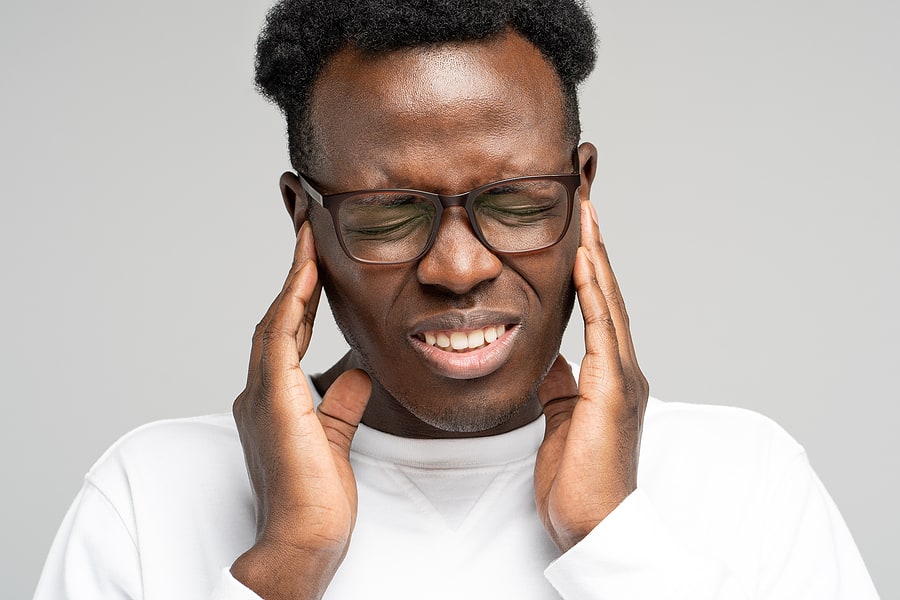
The anatomy of the vestibular system holds the key to understanding your best options for vertigo relief in Pataskala. How well do you know the vestibular system? More importantly, what happens if something goes wrong with any of your vestibular organs? Join us in our discussion below as we dive deep into the many well-known and unexpected causes of vestibular problems.
Meniere’s disease affects around 100,000 people each year in the USA. This inner ear problem results from poor fluid drainage from the head. Besides triggering dizzying spells and spinning sensations, this vestibular disorder also triggers the onset of additional problems, ranging from ear congestion to partial hearing loss.
Did you know that many patients seeking vertigo relief in Pataskala have BPPV? This condition primarily occurs because of dislodged calcium crystals which interfere with the signal transmission to and from the brain. You experience worsening symptoms like vertigo episodes, nausea, and vomiting whenever you tilt your head.
Vertigo attacks are among the hallmark symptoms of an inner ear infection. Spinning sensations primarily occur because of the inflammation of the labyrinth, the inner ear chamber, and the vestibulocochlear nerve. This specific nerve sends signals concerning motion and orientation changes to the brain. In most cases, the symptoms only go away once you get rid of the bacteria or virus that caused the infection.
Mal de Débarquement is one of the rarely reported causes of vertigo attacks. The spinning sensation, confusion, and fatigue often appear after getting off a moving vehicle. It mostly gets triggered in ships, but some studies note it can also affect plane, car, or train passengers with MDD.
As we grow older, the quality of some parts of the body, such as the vestibular system, also degrades. While most studies point to BPPV as the root cause of dizzying and spinning sensations in older people, some note that other factors might be in play, such as:
Doctors describe acoustic neuroma as a type of benign tumor that grows inside the inner ear. While it doesn’t progress into a malignant tissue, it can impact your ability to hear or maintain balance.
The growing tissue tends to press onto the nerves and other organs as it grows. Unfortunately, this causes your vestibular system to misfire information that will confuse the brain and other balance organs like the eyes.
According to John Hopkin’s Medicine, about 2000 to 3000 people get diagnosed with acoustic neuroma. Besides causing vertigo episodes, this type of benign tissue growth can also trigger additional symptoms, including:

PPPD is a chronic and complex disorder of the vestibular system. Unlike most of the diseases, we listed above, PPPD doesn’t cause spinning sensations. Instead, it has disorienting symptoms that get worse when exposed to visual stimuli like a bright cinema screen. The signs also worsen when you make sudden body movements or changes to your head’s position.
Some patients rely on taking medication to lessen the impact of their vertigo episodes. It’s a quick and short-term option for vertigo relief in Pataskala. Unfortunately, some patients can’t use the same remedy because they have ototoxicity. Getting diagnosed with ototoxicity means that your inner ear has suffered from damage because of drug intake.
Specific types of medication used to battle cancer and other chronic conditions can trigger this disorder. That’s why we highly recommend consulting your physician before taking any prescription if you frequently have vertigo episodes. Make sure to ask about the contraindication of the medications you take for other health conditions, too, like hypertension and depression.
AIED or autoimmune inner ear disease is a rare problem that develops when your immune system becomes hypersensitive and attacks the inner ears. It often comes hand in hand with debilitating symptoms like hearing loss, vertigo attacks, and tinnitus.
According to a study, about one percent of the cases of hearing loss in the USA stem from AIED. In most cases, doctors use immunosuppressive medications. Such types of drugs can calm down the hyperactive immune system of the patient.
Besides the vestibular diseases and disorders we have enumerated above, we want to highlight the importance of neck bone alignment in maintaining balance. Many don’t know that the upper neck bones perform an additional function besides holding the head upright. As a result, several patients seeking vertigo relief in Pataskala years ago rarely consider having their necks checked by an Upper Cervical Care doctor.
Thankfully, nowadays, Upper Cervical Care has become one of the most sought-after remedies for vertigo relief in Pataskala. Patients who previously got into a car or sports accident often consult with a neck chiropractor for help. Others who developed cervical subluxation through the years because of poor posture or other factors also seek the help of upper cervical care to relieve their symptoms.
Upper Cervical Chiropractic is among the well-researched vertigo remedies today, so you have a better chance at eliminating all your symptoms.
You can book a consultation with Genesis Chiropractic if you want to explore Upper Cervical Chiropractic to relieve vertigo episodes and vestibular problems.
To schedule a consultation with Dr. Claggett, call our Pataskala office at 740-951-0011. You can also click the button below.

If you are outside of the local area, you can find an Upper Cervical Doctor near you at www.uppercervicalawareness.com.